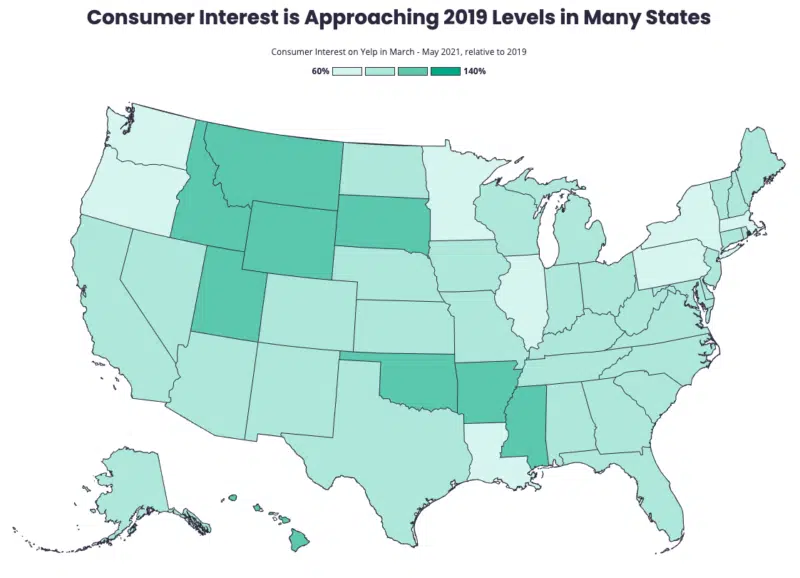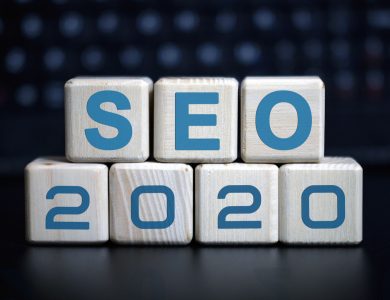Can the Industry’s Biggest Players Win Over Privacy Enthusiasts?; Thursday’s Daily Brief

Search Engine Land’s daily brief offers daily insights, news, tips, and essential wisdom for today’s search marketer. If you wish to receive this before it’s available to everyone else, sign up to get it delivered to your inbox daily.
Good morning, Marketers, can the biggest industry players win over privacy enthusiasts?
Brave, the privacy-focused browser, recently launched its search engine as an open beta. Last week, DuckDuckGo announced a 55% increase in search traffic over the past 12 months. Both companies are broadening their services to appeal to privacy-conscious users, likely perceiving a growing business opportunity.
It’s simple to say that smaller search engines are trying to cut into Google’s market share, which they are, but that view is somewhat oversimplified. Tech giants like Google and Apple are also aiming to demonstrate their commitment to privacy — or more accurately, they want users to feel that they value privacy. This is evident in their blog post language and recent updates and features, such as Apple’s App Tracking Transparency and Google’s Android counterpart.
In my opinion, companies founded with privacy as a core principle are more likely to create superior products for privacy-minded users, as their strategic decisions and investments are guided by this philosophy. Conversely, established players must answer to stakeholders and may have created their products before privacy became a significant concern, requiring substantial overhauls. However, they also have the resources to make these changes.
Will Google, Bing, Facebook, or other tech giants attract more privacy-conscious users, or are their efforts more about retaining users within their ecosystems? Share your thoughts by emailing me at [email protected] (subject line: Hands off my cookie jar).
George Nguyen,
Editor
Google Search released a spam update on June 23
For those who’ve understandably lost track, in the past two months, there’s been Google’s product reviews update, the June core update, the ongoing page experience update, and now, a newly announced spam update distinct from the others.
The spam update was implemented in a single day, unlike core updates, and Google disclosed that a second spam update is coming next week. If you noticed ranking changes yesterday, it might be due to Google’s spam-fighting efforts, so ensure your site complies with Google’s rules and guidelines to maintain organic visibility.
Ask the expert: Your top FLoC questions answered
“Let me get on my soapbox here for a minute and talk about what’s really significant now. The immediate concern is that many advertisers fail to communicate to Google what a conversion truly is. Yes, you do conversion tracking, but you don’t specify what actually matters to you,” said Frederick Vallaeys during the Q&A after his SMX Advanced session on improving measurement in FLoC.
Attendees from all over the world presented their toughest FLoC questions and scenarios to Vallaeys, co-founder and CEO at Optmyzr. Highlights include:
- Will it work for B2B? Maybe.
- How is Google testing FLoC? Constantly.
- How can we improve measurement? Tell Google what metrics actually matter.
- How will cross-device browsing and targeting work? If you search differently on each device, you’ll be in different cohorts on each.
- Will targeting still be precise? Yes.
Consumer interest already exceeds 2019 levels in some states

Americans are eager to return to their pre-pandemic lifestyles, according to data from Yelp’s June 2021 Economic Recovery Report. Consumer interest, measured by user actions to connect with businesses on Yelp, has already exceeded 2019 levels in states like Idaho, Wyoming, Utah, Montana, South Dakota, Oklahoma, and Arkansas. Smaller metro areas are recovering faster than larger ones, possibly due to more aggressive safety measures in major metros to curb COVID spread.
Recovery is progressing across various business sectors: restaurants have reached 86% of their 2019 consumer interest levels, while food businesses have bounced back to 92%. Shopping and retail are also returning, having recovered to 92% of March-May 2019 levels, driven by what many call “revenge shopping.” Home and local services, fueled by increased demand, have reached 99% of 2019 levels, and automotive services have surpassed the benchmarks from two years ago, with Yelp observing 106% recovery in this sector.
Mordy Oberstein joins Semrush as head of communications
#SEOchat organizer and host Mordy Oberstein has joined SEO toolset provider Semrush as its new head of communications. In addition to facilitating SEOchat, Oberstein is an active SEO community member, co-hosting EDGE of the Web’s news podcast and his own SEO Rant podcast, and presenting at various SMX events.
Prior to joining Semrush, Oberstein served as liaison to the SEO community for Wix and will remain on Wix’s advisory board. Before that, he worked for another SEO toolset provider, Rank Ranger, as its chief marketing officer.
“My goal is to help my team be as effective and happy as possible — that’s #1,” Oberstein told Search Engine Land when asked about his new role. “I also aim to share valuable information and data to help SEOs better understand their environment and make informed decisions, as well as to illustrate what Semrush stands for, from the product itself to the brand’s role in assisting SEOs,” he added.
Rumors of new GMB reports, Bing’s Pride Month theme, and clauses you might want to add to your contracts
GMB “rush hour” and “about your company” reports: Google My Business Insights may soon feature two new reports. Lluc B. Penycate shared screenshots of the “rush hour” report, which also provides visit duration details, and the “about your business” report, which likely draws on customer reviews and ratings.
Show your pride with Bing search: Although Pride Month is ending, you can still celebrate. Bing recently added a vibrant Pride theme to its web search interface, which I’ll be using for the foreseeable future.
What are you including in your contracts? The responses to question #2 of Tuesday’s #PPCchat offered practitioners ways to advocate for and protect themselves. Standard response times and procedures for non-responsive clients are two elements PPCchat host Julie Bacchini includes in her contracts, while Ameet Khabra emphasizes liability clauses, having experienced the necessity of such provisions firsthand.



